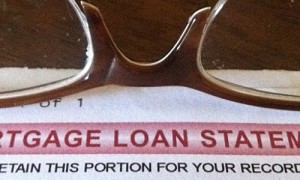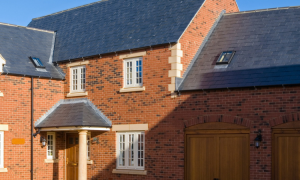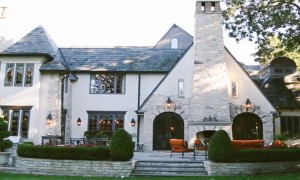There may be a few headwinds facing the housing market but home sales continue to rack up significant gains.
First-time home buyers stepped up to the plate in June, accounting for a third of homes purchased, up from 30% in May, according to the National Association of Realtors (NAR). The first-timers contributed to a fourth straight month of increased sales, which rose 1.1% from May’s 10-year high.
Total sales of existing homes came in at an annual rate of 5.57 million, 3% higher than 12 months earlier. That’s even though the luxury home market has cooled and there are not enough listings to satisfy demand in many of the nation’s hottest markets, according to Budge Huskey, CEO of Coldwell Banker Real Estate LLC.
“Despite a pull back in the ultra high end and continuing tight inventories across many markets, the housing recovery marches forward in an environment of sustained economic growth and interest rates, which apparently aren’t signaling any measurable increase in the foreseeable future,” he said.
Bargain rates
Indeed, mortgage interest rates have fallen more than half a percentage point since the beginning of 2016 and are threatening post-housing-bust lows. Freddie Mac, the government run mortgage giant, reported Thursday that the average rate for a 30-year loan is currently around 3.45%. That represents huge savings on monthly payments compared to the long-term average of about 6%. Homeowners with $200,000 mortgages would pay less than $900, saving $300 compared with a 6% rate.
Sales could grow even stronger, according to Lawrence Yun, NAR’s chief economist. June sales were hurt by shortages of listings. Strong closings totals in the earlier spring months meant house hunters had less inventory to choose from in many places. Nationally, there were 2.12 existing homes for sale, down 5.8% from a year ago. The inventory stood at a 4.6 month supply, a slight drop from May.
As for interest rate trends, Yun thinks they could drop even lower, due to the uncertainty surrounding Britain’s Eurozone exit and other world financial and economic events. Foreign investors turn to safe havens in times of turmoil and U.S. Treasuries and mortgage-backed securities are in high demand, keeping rates down.
Another boost for home sales has come from solid job gains during the year. The economy added more than a million jobs in the first six months, dropping the unemployment rate below 5%. Wages have reported gains as well, up 2.6% year-over-year, according to the Bureau of Labor Statistics. More people working at higher income jobs translates into increased demand for houses to buy.
Another factor encouraging consumers to act is strong home price appreciation. NAR reported a national median price of $247,700 for homes sold in June, up 4.8% over 12 months earlier. Prices have grown faster than inflation and income. That, combined with the risk of increases in mortgage rates, creates fear in buyers that, if they postpone purchases, their costs could soar.
Too, many feel they’re throwing their money away on rent, which is increasing at alarming rates in many markets. Median rents have blown past the $3,000 a month level in a few cities and have hit $4,600 a month in New York and San Francisco, the nation’s most expensive rental city, according to Apartment List.
Jumping on board
With rents so high, it’s no wonder many millennials and other first-timers were anxious to become home owners in June. The market share for first-time buyers, at 33%, represents a four-year high, according to NAR’s Yun, who also said that it may be a hopeful indication that more starter homes are hitting the listing pages. That’s especially true outside the hot, mostly coastal cities.
“The odds of closing on a home are definitely higher right now for first-time buyers living in metro areas with tamer price growth and greater entry-level supply — particularly areas in the Midwest and parts of the South,” he said.
Even with the very strong first half of the year, Yun struck a cautionary note going forward.
“Looking ahead, it’s unclear if this current sales pace can further accelerate as record high stock prices, near-record low mortgage rates and solid job gains face off against a dearth of homes available for sale and lofty home prices that keep advancing,” he said.
Prices up everywhere
The Midwest recorded the largest month-over-month gain in sales, up 3.8%. The West recorded a 1.7% gain while sales were flat in the South and declined 1.3% in the Northeast.
Here are year-over-year sales changes by region:
| Region | Home sales | % Sales increase year-over-year | Median home price | % Price change year-over-year |
| Northeast | 760,000 | 5.6% | $284,800 | 1.4% |
| Midwest | 1.35 million | 4.7% | $199,900 | 5.7% |
| South | 2.26 million | 3.2% | $217,400 | 5.5% |
| West | 1.12 million | -0.8% | $350,800 | 7.2% |
Source: National Association of Realtors






